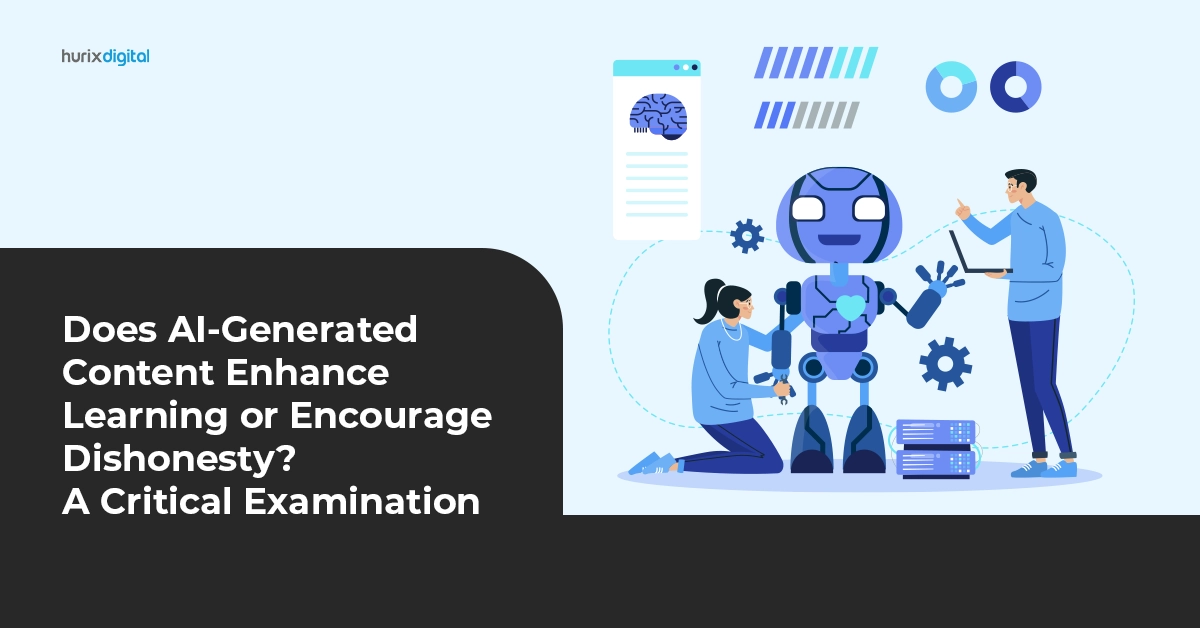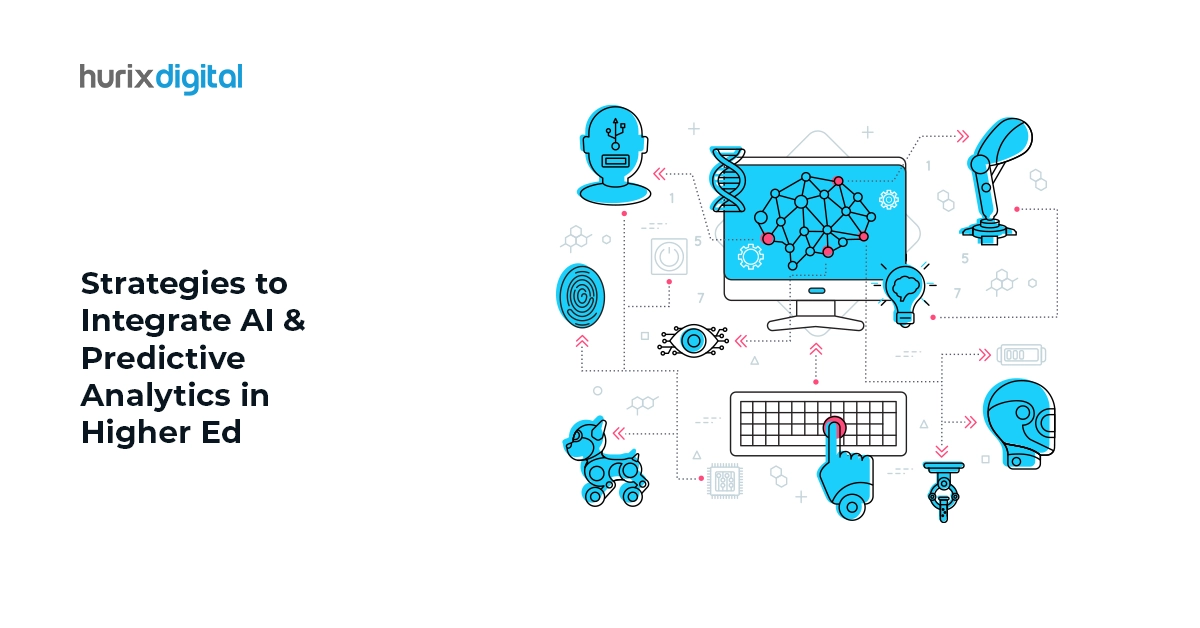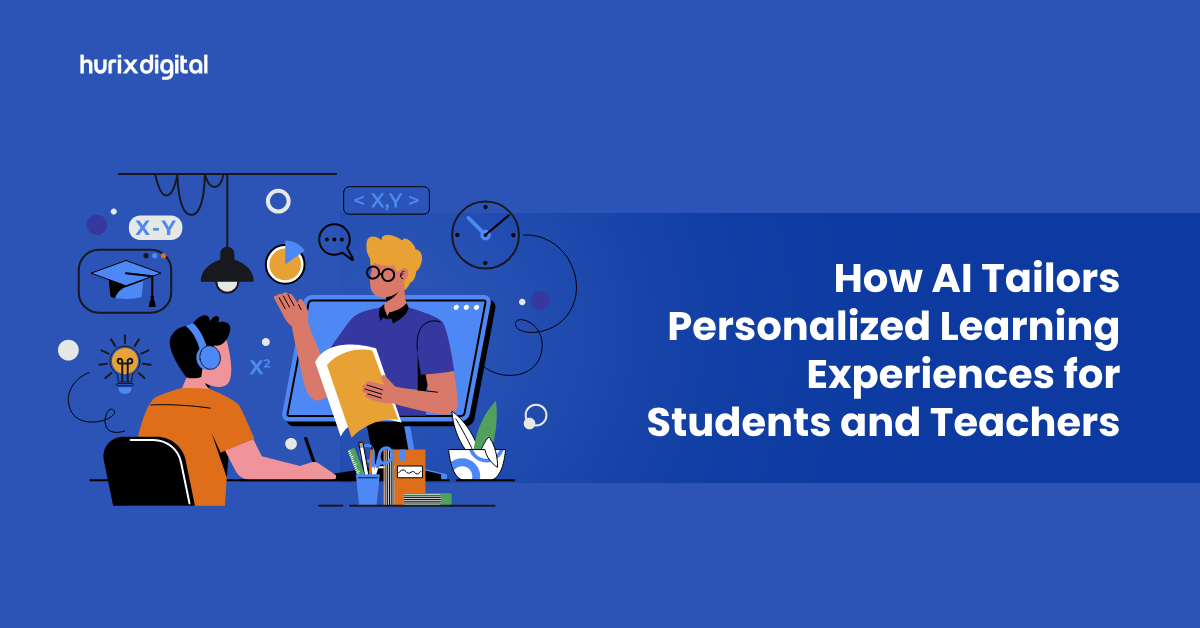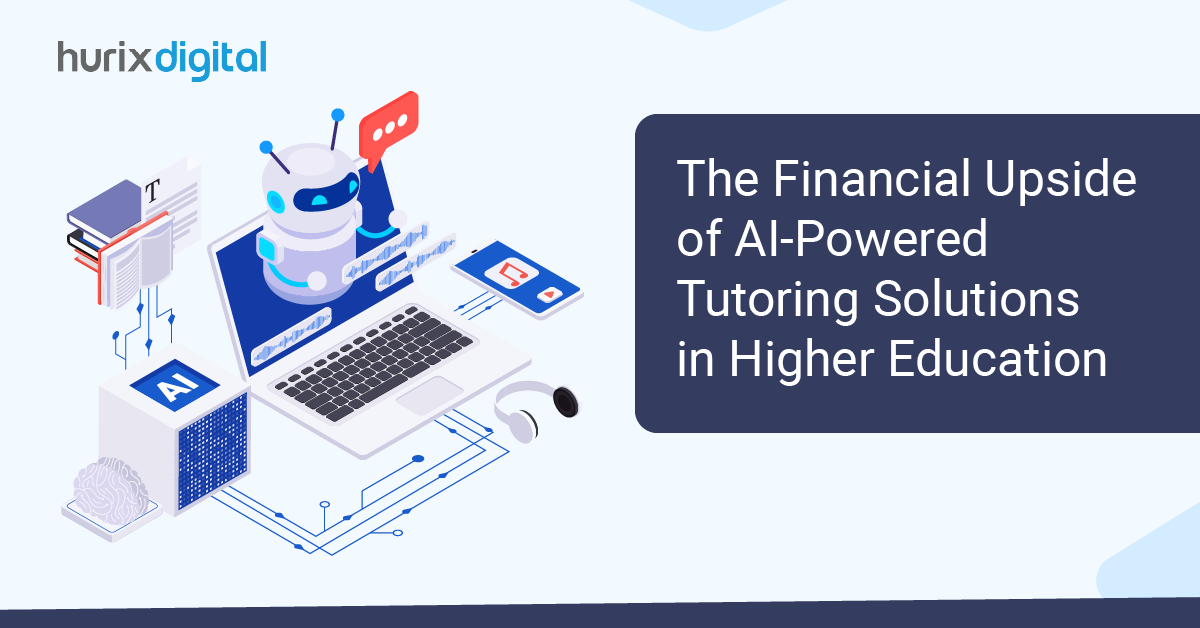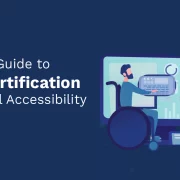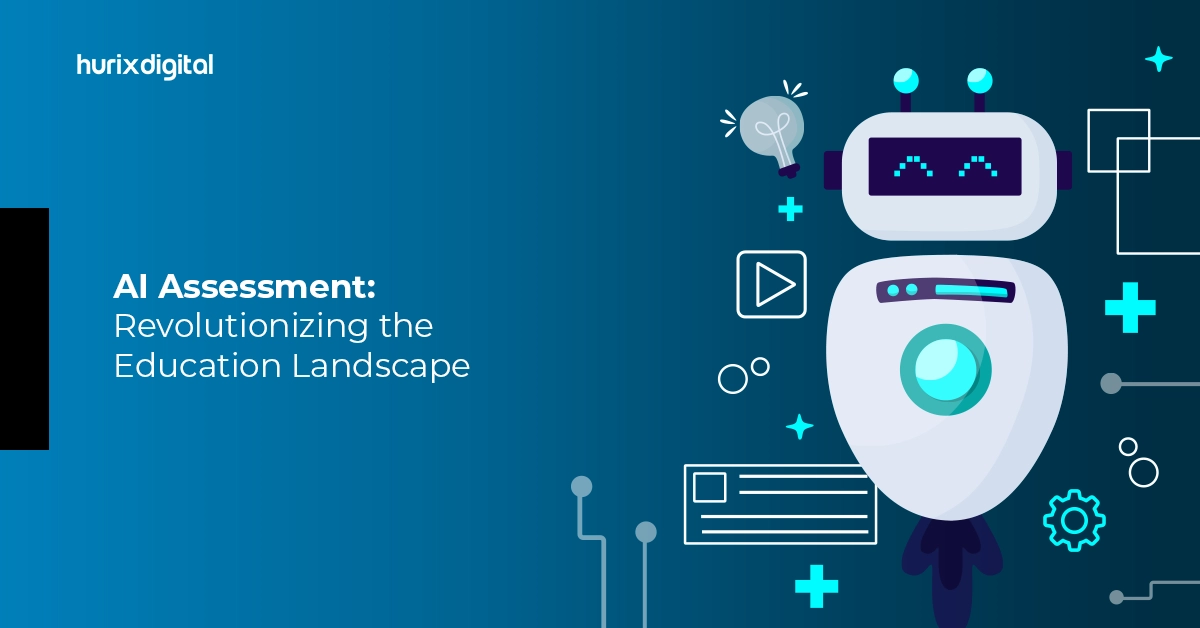
AI Assessment: Revolutionizing the Education Landscape
Summary
This article explores how AI assessment is revolutionizing the education landscape. It highlights how AI-driven tools make assessments more efficient and tailored to individual learning needs.
Integrating technology in every sphere of life is the need of the hour. Technology has enhanced educational higher learning practices for both students and educators. AI has personalized higher education curricula, automated administrative tasks for universities, driven data-oriented insights, and offered interactive learning experiences.
The advent of artificial intelligence has also transformed assessment tools in higher education. It has revolutionized the traditional methods of evaluating student performance and improved the educational experience. Today, according to research, AI tools are helping teachers spend 70% less time in assessing and grading assignments.
Let us understand the ethics of AI grading and assessment in this guide!
Table of Contents:
- The Evolution of AI-Powered Assessments and Grading
- Challenges of Traditional Grading Systems
- The Importance of AI in Assessment and Evaluation
- How Does AI in Assessment Work?
- Developing Authentic Assessment Tasks
- Best Practices to Use AI Assessment in Education
- AI Tools in Education
- Relevance of AI Tools in Education
- AI Assessments – A Game-Changer in Grading
- The Future of AI-Driven Assessment
- Conclusion
The Evolution of AI-Powered Assessments and Grading
Today, educators don’t have to spend hours checking loads of essays or student performances. Educational technology has leveraged AI-powered grading systems that can now evaluate various factors and provide quick feedback to students. These systems work with remarkable speed and precision and help educators identify patterns and trends.
It has been projected that the role of AI in the education market will increase from $3.99 billion in 2023 to $5.57 billion by the end of 2024. It has also been forecasted that by 2030, AI will score 50% of higher education essays and multiple-choice examinations.
AI grading systems eliminate human biases and ensure a fairer evaluation process. Automated assessments use advanced natural language processing techniques to analyze student performances and offer constructive feedback for improvement.
Challenges of Traditional Grading Systems
Traditional grading methods have several challenges:
- Human graders often bring personal biases into their evaluations. This can result in inconsistent and unfair assessments.
- Manually grading large volumes of assignments is time-consuming. This diverts time from more valuable educational activities such as personalized student support.
- Conventional assessment techniques often provide limited feedback. This can impact the student’s ability to understand their mistakes.
Also Read: 10 Tips for Choosing the Right Educational Games for K12 Curriculum
The Importance of AI in Assessment and Evaluation
AI’s role in assessment and evaluation can instantly measure student performance and program effectiveness.
AI-powered assessment tools automate grading, provide instant feedback, and personalize questions to individual students’ skill levels. This approach offers valuable insights into student performance trends. Here is how AI assessment in education helps:
- AI enhances broader educational contexts such as program effectiveness, teaching quality, and institutional accreditation.
- AI offers authentic automated assessments where students apply knowledge to real-world problems. This approach promotes higher-order thinking skills and practical application.
- AI grading can help students demonstrate their skills and knowledge through presentations, simulations, and creative projects.
- Authentic AI-based assessments allow educators to support individual learning needs.
How Does AI in Assessment Work?
The integration of AI grading in educational technology has improved the assessment using the following techniques:
1. Incorporating Natural Language Processing
AI uses NLP algorithms to interpret written responses. AI grading assesses the quality, coherence, and relevance of student answers and gauges their understanding.
2. Recognizing Patterns and Trends
AI assessment in education identifies patterns in student responses. This helps educators detect common mistakes and misconceptions and offer targeted teaching adjustments.
3. Adaptive and Inclusive Learning
These systems analyze extensive student data and offer personalized feedback after addressing individual learning gaps.
4. Generating Instant Feedback
AI algorithms produce detailed feedback for students. This saves educators’ time and provides students with actionable insights.
Developing Authentic Assessment Tasks
Authentic assessment tasks require students to perform. Some examples are:
1. Student Demonstrations
Students can engage in activities like experiments, story writing, model creation, and play performances, which allow them to showcase their skills and interests.
2. Student Collaboration Tasks
Group projects that require teamwork, role assignments, and regular meetings have every student contributing to a collective outcome.
3. Empirical Research
Students collect data through interviews, observations, and focus groups. They can later present their findings and case studies with supporting evidence.
4. Presentations
Activities like panel discussions, seminars, and debates can be assessed. These activities require preparation and higher-order thinking.
5. Creative Projects
As a part of the automated assessment structure, students can delve into documentaries, podcasts, videos, and other media to demonstrate knowledge.
6. Role-Playing
Creative representations of learning through various performance mediums help educators gauge their confidence levels and understanding of core subjects.
Best Practices to Use AI Assessment in Education
To maximize the effectiveness of AI assessment strategies, educators should:
- Provide timelines and criteria, and include guidelines on AI tool usage to promote its ethical use.
- Combine various approaches and simplify complex tasks into manageable parts.
- Provide ongoing feedback to guide students toward their learning goals.
- Ensure tasks are relevant to course objectives.
- Promote student self and automated assessment.
- Inform students about the capabilities and limitations of AI.
AI Tools in Education
AI applications in education include:
- AI Plagiarism Detection Tool: AI-driven platforms are used for grading various types of assignments efficiently.
- AI for Written Assignments: NLP models analyze essays for language, structure, and argument quality, providing accurate and personalized feedback.
- Assessment of Oral Presentations: AI algorithms evaluate presentations based on clarity, organization, and content, using speech recognition and machine learning.
- AI-Driven Peer Review: This technology facilitates peer review by matching students and monitoring feedback quality, promoting critical thinking and collaboration.
- Creativity Assessment: AI evaluates creative works in art, music, and design, providing objective feedback on originality and quality.
Relevance of AI Tools in Education
AI assessment in education is all about evaluating students’ knowledge, skills, abilities, and learning outcomes using formative and summative grading systems. The solutions can incorporate adaptive learning and data analytics. These tools are offered by advanced AI-enriched digital platforms.
Common assessment tools include:
- Standardized tests to measure knowledge, critical thinking, and creativity
- Observations to gauge practical skills in real-time
- Measuring the impact of teaching methods
- Identifying areas where students excel or need improvement
- Customizing teaching strategies based on assessment data
- Leveraging continuous learning and growth and promoting accountability and transparency
- Supporting accreditation requirements and demonstrating program quality to stakeholders
- Offering personalized learning experiences and actionable insights
AI Assessments – A Game-Changer in Grading
The advent of artificial intelligence has revolutionized educational technology and exam grading. AI-powered automated grading systems offer several advantages that can transform education.
1. Speed and Precision
AI-powered grading systems significantly speed up the grading process.
Tasks are quickly monitored and evaluated, which allows students to receive prompt feedback.
2. Impartial Evaluation
AI grading systems eliminate human biases. This means fair, transparent, and objective assessments.
AI adheres to a set of algorithms and criteria, which ensures that every student’s work is thoroughly evaluated without prejudice.
3. Consistency
AI-driven grading systems handle large volumes of exams efficiently while maintaining consistent assessment standards.
This scalability eliminates the variability that can be seen with multiple human graders.
4. Personalized Feedback
AI’s true strength lies in providing personalized feedback. AI assessments analyze individual student responses and identify individual strengths and weaknesses.
This feedback on such findings helps students focus on areas needing improvement.
5. Gamification of Assessments
AI enables innovative assessment methods, such as using natural language processing to create novel questions and hypotheses.
Gamification elements, such as challenges and interactive content, enhance engagement and encourage continuous learning.
6. Accessibility
AI assessments offer enhanced accessibility, work in remote environments, and accommodate diverse styles and abilities.
AI-driven assessments can enhanced by using visual aids and interactive elements, which ultimately makes learning more inclusive.
7. Automation
AI automates the assessment process and reduces human intervention. This automation saves time and allows educators to focus on other important education-related tasks.
AI tools curate assessments, evaluate performance, maintain scores, and deliver results efficiently.
8. Variety in Assessment
AI facilitates diverse evaluation methods, catering to different learning styles and preferences.
From automated grading of objective questions to analyzing multimedia submissions and real-time problem-solving through simulations, AI offers a versatile and accurate assessment package.
9. Addressing Cheating Concerns
AI can mitigate cheating by generating personalized tests for each learner, rendering leaked questions irrelevant.
By creating unique assessments for every student, AI ensures exam integrity. Additionally, AI-driven assignments that require higher-order thinking skills and real-world applications discourage cheating and promote genuine learning.
The Future of AI-Driven Assessment
AI-driven assessment is poised to revolutionize education with continuous improvements:
- More sophisticated algorithms will increase assessment accuracy and reliability.
- AI assessment can be applied to a broader range of subjects
Combining AI-driven assessment with learning management systems and adaptive learning platforms will create a more comprehensive educational experience.
Check out EXCLUSIVE: Harnessing the Power of Tech-Infused Education – Students and Educators Alike
Conclusion
AI assessment in education enhances efficiency, fairness, and personalized learning. As AI educational technology evolves, its role in education will expand, embracing innovations and providing a more engaging educational experience. AI grading empowers students to reach their full potential.
Embrace expert solutions like Hurix Digital for educational institutions and revolutionize AI-based assessment methods. Discover how AI-driven assessment solutions can help you stay ahead in this digitalized educational technology.
Get in touch with us today.

Senior Vice President
A Business Development professional with >20 years of experience with strong capability to sell new solutions and develop new markets from scratch. New Market Entry Specialist with experience of working in two of the largest emerging markets – China & India. Also covered other key markets in APAC, US, EU & ME. Exceptional experience of conceptualizing, ideating and selling new learning technologies like VR AR, etc. across multiple industry verticals.
